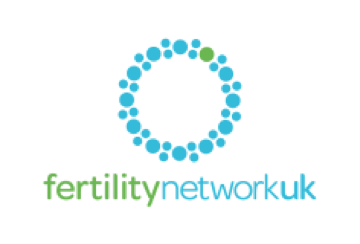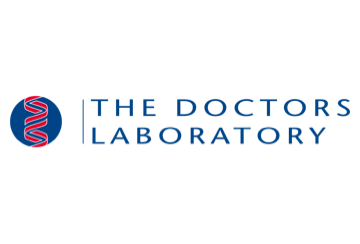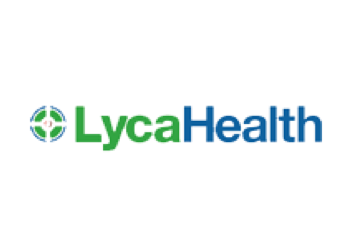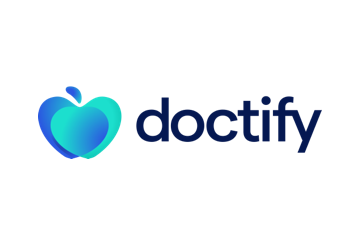IVF
During In Vitro Fertilisation (IVF), eggs are removed from the woman’s ovaries and fertilised with sperm in a laboratory. The fertilised egg, called an embryo, is then returned to the woman’s womb to grow and develop.

What is IVF and how does it work?
IVF is a popular fertility treatment that can help people who struggle to conceive or cannot conceive naturally. You can use your own egg and sperm or a donor’s egg and/or sperm. IVF is available for anyone looking to start a family, including heterosexual and same-sex couples and single women.
During IVF, a woman’s eggs are removed from her ovaries and fertilised with sperm in a laboratory. The fertilised eggs are called embryos. The embryologist will then choose the strongest embryo to be returned to the woman’s womb to grow and develop.
Your consultant will recommend a personalised treatment plan to maximise your chances of success with IVF.
Why might IVF be recommended?
Infertility affects around one in seven couples. There are many reasons why couples might struggle to conceive. Some of the common reasons that IVF might be recommended include:
- Fallopian tube damage or blockage
- Ovulation disorders such as polycystic ovary syndrome (PCOS)
- Diminished ovarian function with an increase in female age
- Endometriosis
- Uterine fibroids
- Suboptimal sperm production or function
- Unexplained subfertility
IVF is suitable for most, so if you’ve been trying to conceive for more than six months without success, it’s a good idea to make a consultation with a fertility consultant.
We offer free 15-minute advisory calls to discuss any questions you might have about your fertility and whether or not IVF might be right for you.
What are the steps involved in IVF treatment?
IVF is a complex process that involves a number of steps. Each time you undergo the procedure, it is called a cycle.
Four main steps constitute a single cycle of IVF:
Workup – This includes an initial consultation, fertility fitness tests and a follow-up consultation to discuss your treatment plan.
Preparation – During this step, you will complete all relevant consent forms, attend a consultation with a nurse and purchase your medication.
Egg stimulation and collection – Following your ovarian stimulation medication, you will undergo egg collection.
Embryo development and transfer – Your healthy eggs will be combined with sperm for embryo development. When ready, the embryo will be transferred to your womb.
Your IVF journey starts with an hour-long initial consultation with your fertility specialist to determine your medical history and suitability for IVF treatment. In some cases, you may be referred to another specialist, such as if you have any medical problems or are overweight.
Following your consultation, both you and your partner will undergo various fertility fitness tests, which include:
- Ovarian reserve test to check your ovarian function
- Assessment of your uterine cavity to check for polyps or fibroids and to check the womb lining
- General health checks for infectious diseases (such as HIV and hepatitis)
- Semen analysis to analyse sperm count, motility and shape as well as the DNA quality of your partner’s sperm
During your follow-up appointment, you will have the opportunity to discuss the outcome of your tests, ask any further questions and firm up your treatment plan with your consultant.
The preparation stage of IVF involves completing all relevant consent forms and preparing for ovarian stimulation and egg collection treatment.
At this stage, you will receive a link via email to our online consent form portal to access all the relevant HFEA consent forms and clinic consent forms. You can withdraw or alter your form/s at any time — before, during or after your treatment.
At your hour-long consultation, your nurse will cover the following:
- An ID check
- A discussion about your personalised medication and treatment plan
- Witnessing your consent forms
Please ask for a copy of your consent forms.
Any medications you need as part of your treatment are not included in the treatment package. These will needed to be ordered separately. Please follow the storage instructions carefully, as some drugs need to be refrigerated.
The next step is stimulating the ovaries to produce mature eggs for collection.
Most patients will self-administer injections to stimulate the ovaries for around 12 days. All the drugs used for IVF treatment are administered subcutaneously, i.e., under the skin.
The eggs are collected under sedation. The egg collection is a relatively non-invasive procedure and carries minimal risks. You may bring a friend or relative, although this is not mandatory. You must, however, have someone collect you after the procedure and stay with you for 24 hours post-procedure.
After the mature eggs are collected, they will be mixed with your partner’s sperm or a donor’s to fertilise them.
In some cases, you might be recommended to do an additional type of IVF treatment called Intracytoplasmic Sperm Injection (ICSI). This technique is when sperm is injected directly into the egg. It is typically suggested when the sperm is not optimal due to low count, motility or morphology.
You will get regular updates on the progress of the embryos. Typically, five to six days after the egg collection procedure, the best-quality embryo will be transferred into the uterine cavity under ultrasound guidance. The use of progesterone supplements supports the luteal phase.
On the day of the embryo transfer, the embryologist will assess the remaining embryos. Embryos that are of high quality will be put in storage for future use.
A pregnancy test is performed two weeks after the embryo transfer to confirm successful implantation.
How much does IVF cost?
At IVF Matters, we believe that financial stress shouldn’t stop you from pursuing your dreams of having a baby. That’s why we offer fertility treatment options like IVF at affordable prices.
In Vitro Fertilisation Treatment (IVF) ‒ £3,899
Our IVF package includes the following:
- HFEA fee
- Nurse consultation
- Cycle management
- Ultrasound monitoring
- Egg collection under sedation
- Sperm preparation
- Embryo transfer on day 3
- Consultation with nutritionist or counsellor*
*First cycle of treatment
Additional charges as applicable:
- ICSI ‒ £1,299
- IMSI ‒ £699
- PICSI ‒ £149
- Blastocyst transfer ‒ £749
- Embryoscope ‒ £649
- Assisted hatching ‒ £699
- Embryo glue ‒ £349
- Embryo freezing and storage for one year ‒ £1,299
- Blood tests ‒ £349
IVF Treatment
IVF Treatment (1:08)
Play
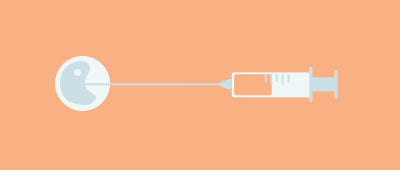
IVF Treatment | Process (2:55)
Play

IVF Treatment | Advantages and Risks (4:34)
Play

IVF Treatment | Egg Collection Demo (1:08)
Play

IVF Treatment | Embryo Transfer Demo (1:55)
Play

Blastocyst | IVF Success (2:31)
Play

Embryoscope | IVF Success (2:31)
Play

Watch Jessica Wright - My Story
Play

Natural Cycle IVF Treatment
Natural Cycle IVF Treatment (1:52)
Play

Natural Cycle IVF Treatment | Process (3:04)
Play

Natural Cycle IVF Treatment | Advantages and Risks (1:32)
Play

Natural Cycle IVF Treatment | Egg Collection Demo (1:13)
Play

Natural Cycle IVF Treatment | Embryo Transfer Demo (2:00)
Play

The common reasons are:
• Fallopian tube damage or blockage
• Ovulation disorders are commonly due to PCOS or diminished ovarian function with an increase in female age
• Endometriosis
• Uterine fibroids
• Suboptimal sperm production of function
• Unexplained subfertility
One IVF cycle takes approximately four weeks. This time estimate includes the two-week waiting period after the embryo transfer before you can take a pregnancy test.
The time frames will vary based on how your body reacts to the various stages of the IVF treatment.
The 2021 live birth rates for IVF at IVF Matters are 65% (for all age groups). The most recent available data from the HFEA is from 2019, with a national average of just under 30%.
Success rates vary depending on many factors, most notably the woman's age and the reason or reasons for infertility. The woman's age at the time of treatment and the quality of the eggs and sperm determines the embryo’s ability to develop. Women who have previously given birth are more likely to get pregnant using IVF.
Success rates are lower for women who have had multiple cycles of IVF treatment but didn’t get pregnant and those with severe endometriosis.
Lifestyle also plays a vital role in determining success. Smoking, high alcohol consumption, obesity, increased caffeine intake and exposure to toxins can lower the quality of the gametes and reduce the chances of a successful outcome.
IVF is generally very safe, and most women do not experience any problems with their health or pregnancy, but as with any medical procedure, there are some risks to be aware of.
Most commonly, you might experience side effects from fertility medications. These are typically short-lived but can include hot flushes, irritability, headaches, bloating and irritation/bruising in the injection site.
Ovarian hyperstimulation syndrome (OHSS) is a complication of fertility drugs taken to increase egg production. It sometimes affects young women with very active ovaries. Most times, this is a mild condition that can be treated at home, but more moderate or severe cases require immediate medical attention.
Other risks of IVF pregnancies include:
- Multiple births
- Ectopic pregnancy
- Birth defects (these are rare, and research is ongoing to determine if problems result from the fertility treatment or because of an age or fertility issue with the parents).
Getting IVF on the NHS is possible, but you must meet specific criteria. The fertility guidelines by the National Institute for Health and Care Excellence (NICE) recommend a set of criteria for IVF funding. However, decisions are made locally by your integrated care board (ICB), and they might have different criteria.
The NICE guidelines recommend that women under the age of 43 who have been trying to get pregnant through regular unprotected sex for two years should be offered IVF. It should also be made available to women who have had 12 cycles of artificial insemination, with at least six of these cycles done by intrauterine insemination (IUI).
We understand that fertility issues are often time-sensitive and that it can be frustrating to wait for fertility services to be offered on the NHS.
At IVF Matters, our fertility services are open to everyone. We see many individuals and couples looking for support whilst on NHS waiting lists — providing quick, accessible and affordable fertility care for all.
Below is a list of commonly used medications for IVF treatment. You may be on some of them. Please refer to your personalised treatment plan to see which medication is prescribed for you.
• GnRH antagonist – eg Inj Cetrotide subcutaneous injections
This drug is used to help prevent premature ovulation prior to egg retrieval. It is given as a subcutaneous injection once daily, usually from day 6 of the cycle during the stimulation phase of treatment, until the day of the trigger injection.
• GnRH agonist – eg Buserelin nasal spray or subcutaneous injections
This drug “switches off” hormone production within the body during treatment. The most common way to administer this drug is via a nasal spray, one sniff into each nostril four times daily. It can also be given in the form of a subcutaneous injection once a day. It is usually started from day 21 of your cycle in the month preceding treatment. Your doctor will inform you when to stop taking it. GnRH agonists may also be used to mature the eggs prior to egg collection, as a trigger injection in those who are on GnRH antagonists. One may experience menopausal symptoms such as vaginal dryness and hot flushes whilst taking this medication.
• Inj FSH – eg Inj Meriofert, Inj Gonal F subcutaneous injections
These injections are used for ovarian stimulation. They are given as subcutaneous injections for around 9 to 12 days. They aim to stimulate the growth of the follicles in the ovaries that contain the eggs, so that several eggs are produced. They should be administered at roughly the same time every day.
• Inj Growth Hormone – eg Inj Zomacton subcutaneous injections
This drug is given to help improve the response to ovarian stimulation. It is given as subcutaneous injection on alternate days during the stimulation phase of treatment.
• Inj hCG – eg Inj Ovitrelle, Inj Gonasi subcutaneous injections
This is also called the trigger injection. It is an hormone that matures the eggs prior to egg collection. These are subcutaneous injections, although some brands may need to be taken as an intramuscular injection. These injections need to be given at a specific time (usually 36-37 hours before egg collection). Your doctor will let you know the date and time your injection should be administered.
• Progesterone – eg Crinone, Cyclogest, Inj Lubion, Inj Prontogest
Progesterone supplements are used in the luteal phase ie the phase post egg collection to support the uterine lining.
The age of the woman at the time of treatment and the quality of the eggs and sperm determines the embryo’s ability to develop. Women who have previously given birth are more likely to get pregnant using IVF. Success rates are lower for women who have had multiple cycles of IVF treatment but didn't get pregnant and those who have severe endometriosis. Lifestyle plays an important role in determining success. Smoking, high alcohol consumption, obesity, increased caffeine intake and exposure to toxins can lower the quality of the gametes and reduce the chances of a successful outcome.
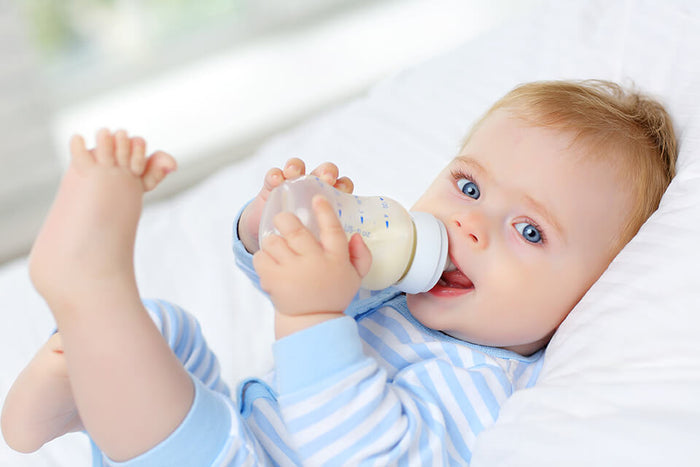
Start the journey to grow your family at London’s leading IVF clinic
We understand that it can be challenging to navigate issues surrounding your fertility. We’re here to give you all the advice, support and treatment you need to increase your chances of having a baby.
If you would like to learn more about our IVF treatment, we offer free 15-minute consultations to anyone looking to learn more. It’s the perfect opportunity to ask questions and gain confidence in making the right decision regarding your IVF journey.
Introducing
Buy Now Pay Later
Interest free payment plans. No credit checks! No applications! Select at checkout
Working with
